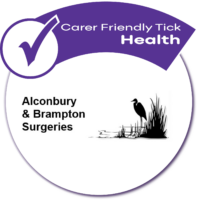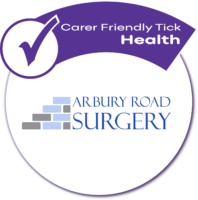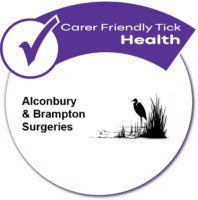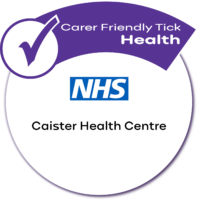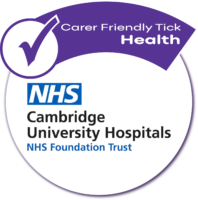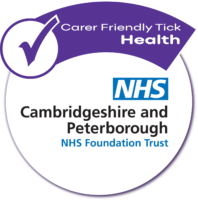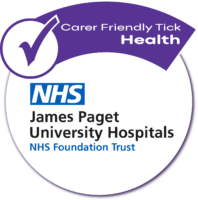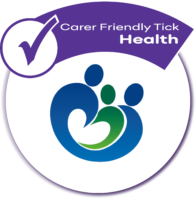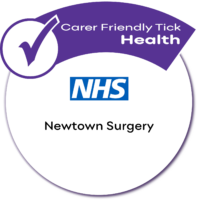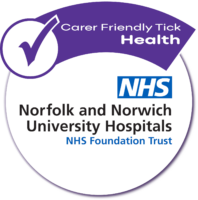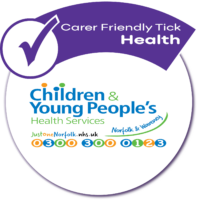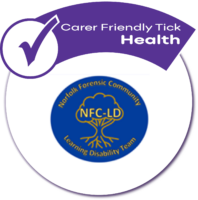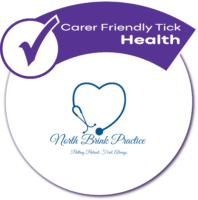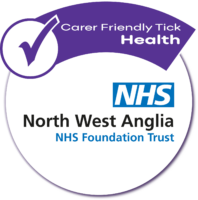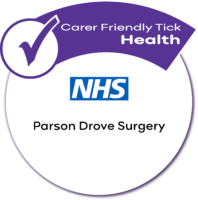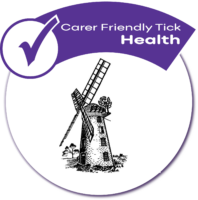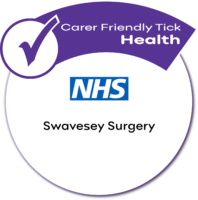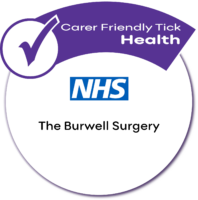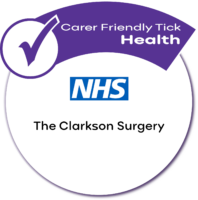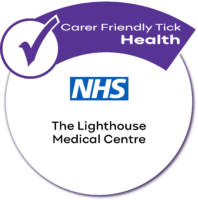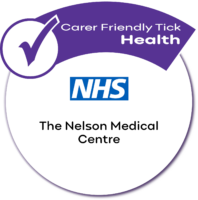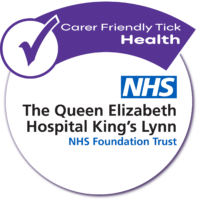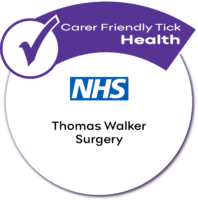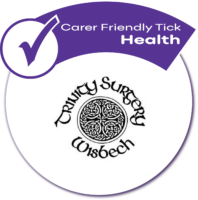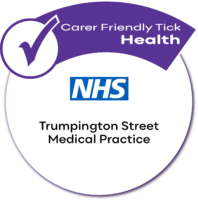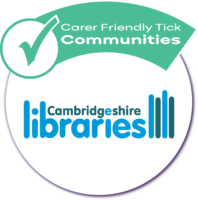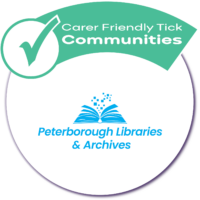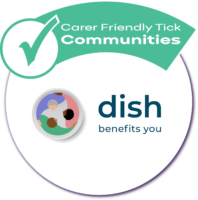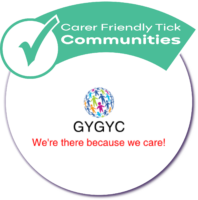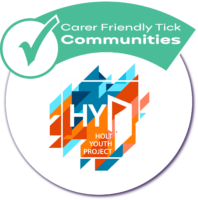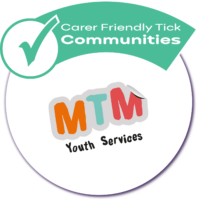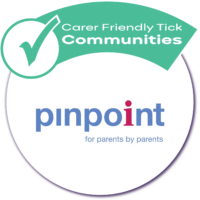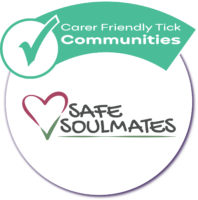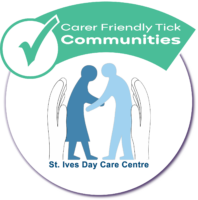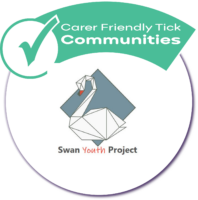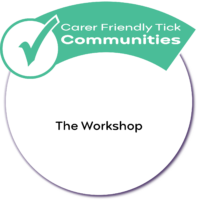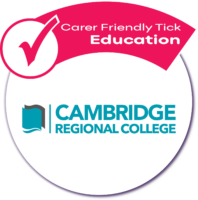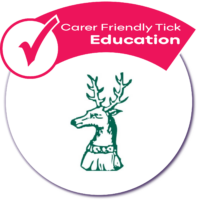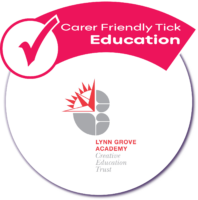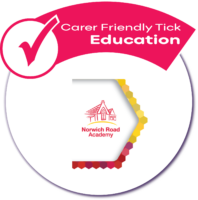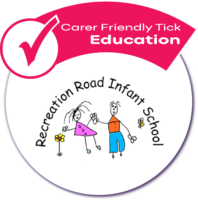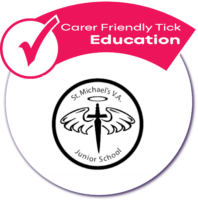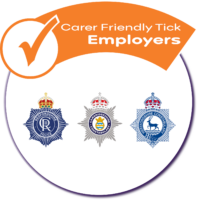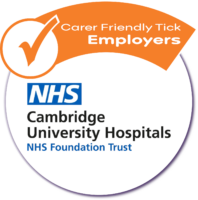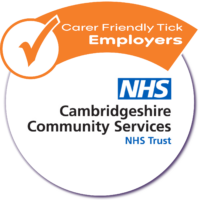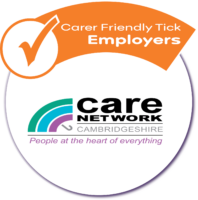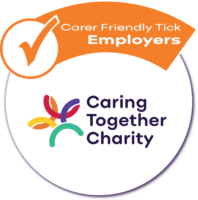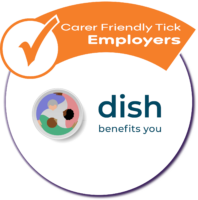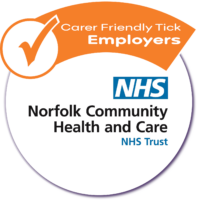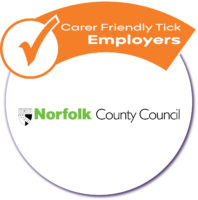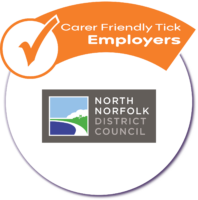Carer Friendly Tick Award Hall of Fame
Carer Friendly Tick Award – Health+
Carer Friendly Tick Award – Communities+
Carer Friendly Tick Award – Education+
Carer Friendly Tick Award – Employers+
Carer's Assessments
Young adult carers+
As you approach 18, the pathways of receiving and accessing support and services change. Making sure that you have information, options and choices in relation to your caring role and life is key.
Young adult carers are entitled to a transition assessment as they approach the age of 18 – at what age this is done will depend on what is best for you and your family.
The transition assessment should support you and your family to plan for the future, by providing you with information about what you can expect. All transition assessments must include an assessment of:
- current needs for care and support and how these impact on wellbeing
- whether you are likely to have needs for support after you turn 18
- if so, what those needs are likely to be, and which are likely to be eligible needs
- the outcomes you wish to achieve in day-to-day life (such as employment/training, further education and independent housing) and how you can be supported to achieve them.
Transition assessments for young adult carers must also specifically consider whether you:
- are able to care now and after you turn 18
- are willing to care now and will continue to be after you turn 18
- work or wish to do so
- are or wish to participate in education, training or recreation.
To find out how to access a young adult carer’s transition assessment in your area, please call or visit the links below:
- Cambridgeshire County Council – click here
- Peterborough City Council – 01733 747474
- Norfolk County Council – click here
Young carers+
Thanks to the Children and Families Act 2014, all young carers have a right to an assessment of their needs. This is irrespective of how much care you provide or who you care for.
To find out how to access a young carer’s needs assessment in your area, please call or visit the links below:
- Cambridgeshire and Peterborough – Centre 33 provide young carers assessments to young carers aged under 18 in Cambridgeshire and Peterborough – visit centre33.org.uk/help/caring/ or email [email protected] for more information.
- Cambridgeshire County Council – click here
- Peterborough City Council – 01733 747474
- Norfolk County Council – click here
In Norfolk, our Norfolk Young Carers Forum project worked with Norfolk County Council to produce a guide to young carers assessments which you can find here [PDF – 4MB]
Parent carers+
If you are a parent of a disabled child aged under 18, your child can be assessed by the local authority under law relating to the needs of children in the Children and Families Act 2014.
You will also be assessed as part of that process because social services will look at the needs of the family as a whole. This is often referred to as a ‘holistic’ assessment.
The assessment should take into account detailed information about your family, including:
- your family’s background and culture
- your own views and preferences
- the needs of any other children you have.
The assessment is not a test of your parenting skills, but should be a sensitive look at any challenges your family has as a whole, with a view to considering what support or services you need.
A care plan should be drawn up that would include services to benefit both you and your disabled child. For example, there could be adaptations to your home, help with bathing or regular respite breaks to ensure you get the rest you need.
For more information about how to access a parent carers’ needs assessment in your area, visit the links below or call us on 01480 499090.
- Cambridgeshire County Council
If your child has a social worker, please speak to them for more information. If you don’t have a social worker, you can self-refer for a social care assessment of your child’s needs by calling 0345 045 5203 - Peterborough City Council – click here
- Norfolk County Council – click here
Adult carers+
If eligible, a carer’s assessment can lead to support being provided to you or the person you care for to reduce the impact of caring on you.
As a minimum all carers must be provided with information and advice on local services to prevent your needs from developing further, and to give you the tools to seek further support if needed in the future. The assessment will cover:
- whether you’re willing and able to carry on providing care
- whether your caring responsibilities have any impact on your wellbeing
- whether you need any support
- what you’d like to achieve in your day-to-day life. For example, you might want more time to take part in activities you enjoy
- whether you qualify for any help from the council.
For more information about how to access a carer’s assessment in your area, visit the links below or call us on 01480 499090.
CFTA Category Information
Do you work or volunteer within the community?+
Empower your community to thrive by recognising and supporting the unpaid carers who make a difference every day. The Carer Friendly Tick Award – Communities celebrates local groups, charities, and community organisations that go above and beyond to identify, value, and support carers in their area.
By achieving this meaningful accreditation, your community organisation will:
✅ Strengthen community bonds: show you care by creating a welcoming environment where carers feel valued and supported.
✅ Gain recognition: be celebrated as a compassionate, carer-aware community, enhancing your visibility and reputation.
✅ Access tailored support: Caring Together Charity provides expert resources, awareness sessions, and hands-on support to guide you every step of the way.
A community organisation who achieved the award said:
“Having the Carer Friendly Tick award has been great for the Project because it provides a formal recognition of the work we do. Supporting young carers has unique challenges and rewards, and being part of the Carer Friendly Tick community means you’re surrounded by other organisations that understand you and what you do. Being able to advertise the Award on our website and socials gives people the confidence that they are getting help from an organisation that really cares about young carers who want to work to best practice and promote the needs of young carers.”
Inspire positive change and make a lasting difference in your community with the Carer Friendly Tick Award – Communities by contacting our team on [email protected] or call us on 01480 499090.
See our Hall of Fame for community organisations who have achieved the accreditation.
Are you an education setting?+
Empower your school, college, or university to make a lasting difference for carers of all ages balancing education with caring responsibilities. The Carer Friendly Tick Award – Education recognises educational settings that go the extra mile to identify, support, and celebrate carers within their setting.
By achieving this award, your setting will:
✅ Support student success: ensure young carers have the tools and understanding they need to balance education and their caring role, reducing barriers to achievement.
✅ Enhance your reputation: gain public recognition as a compassionate, forward-thinking organisation committed to the wellbeing of all learners.
✅ Receive expert guidance: Caring Together Charity provides tailored resources, awareness training, and practical tools to help you meet the award’s standards.
An education setting who achieved the award said:
“Over the past two years, our school has proudly held the Carer Friendly Tick Award, a testament to our commitment to supporting carers within our community. This award has not only validated our efforts but has also significantly enhanced our culture.”
Inspire excellence in education and make a lasting difference in your community with the Carer Friendly Tick Award – Education by contacting our team on [email protected] or call us on 01480 499090.
See our Hall of Fame for education settings who have achieved the accreditation.
Are you a healthcare service?+
Show your commitment to outstanding care, not just for patients but for the unpaid carers who play a vital role in their wellbeing. The Carer Friendly Tick Award – Health is a mark of excellence, recognising health services that go above and beyond to identify, support, and engage with carers.
By achieving this award, your healthcare service will:
✅ Enhance patient outcomes: recognising and supporting carers leads to better communication, continuity of care, and improved health outcomes.
✅ Strengthen community trust: build your reputation as a compassionate, patient-centred organisation that values the whole care network.
✅ Access expert resources: Caring Together Charity provides tailored resources, awareness sessions, and hands-on support to help you meet the award’s standards with confidence.
A healthcare service provider who achieved the award said:
“The award has provided the service with the validation that carers are at the heart of our care. Having a database of external providers that we can signpost carer to, means that when a concern or issue is raised, carers feel heard and the relevant support is or guidance is available. The links with the external services focused on the rights and needs of carers has enriched the skills in the team, developing a more person-centred approach to the care we deliver.”
Inspire excellence in healthcare and join those already making a difference by contacting our team on [email protected] or call us on 01480 499090.
See our Hall of Fame for healthcare services who have achieved the accreditation.
Are you an employer?+
It is estimated that five million people juggle work and care in the UK – one in seven in every workplace – and this figure is set to increase. Given the stresses and strains that can result from balancing work and caring, it is unsurprising that Carers UK concluded that one in six carers give up work or reduce their hours to care.
Under The Carer’s Leave Act 2023, carers are entitled to one week of unpaid leave each year. It’s more important than ever to ensure you are recognising and supporting the carers in your workforce. The Carer Friendly Tick Award – Employers is your opportunity to showcase your commitment to supporting unpaid carers within your workforce, creating a healthier, more inclusive workplace where everyone can thrive.
By achieving this award, your organisation will:
✅ Boost employee retention and productivity: when carers feel supported, they’re more engaged, motivated, and loyal to their employer.
✅ Enhance your reputation: gain public recognition as a compassionate and socially responsible business, strengthening your brand.
✅ Receive expert guidance: Caring Together Charity will support you every step of the way with resources, awareness sessions, and toolkits tailored for your workplace needs.
A local authority said about achieving the award:
“The Carer Friendly Tick Award has enhanced our approach to supporting working carers by providing further confidence that help and support is available for our employees with caring responsibilities, along with greater awareness of caring across the whole organisation. It has also enhanced our recruitment offer to prospective employees who may be considering a career.”
Join leading employers already making a difference by contacting our team on [email protected] or call us on 01480 499090.
See our Hall of Fame for Employers who have achieved the accreditation.
Free Wills Guide
Where do I keep my Will?+
Wills often get lost or mislaid over time, so make sure to keep yours safe. We recommend leaving a copy with your solicitor, or with someone you trust. Alternatively, for a small fee, you can register your Will with the National Will Register.
Are there any tax benefits?+
As a registered charity, your gift to Caring Together Charity will be free of Inheritance Tax (IHT). So, if the value of your estate is more than the tax threshold, a gift to charity could reduce the burden of Inheritance Tax. Also, if you leave 10% or more of your estate to charity, this can reduce the rate of IHT from 40% to 36% on some assets.
Find more information about Inheritance Tax.
Unfortunately, we are unable to claim Gift Aid on gifts in Wills.
What types of gifts can I leave?+
If you’d like to leave a gift in your Will to Caring Together, there are a number of ways you can do it. You could gift:
1. A share or percentage of your estate (residuary gift)
You may wish to leave all or part of what is left of your estate after other gifts and debts have been paid. This gift will not be eroded in value by inflation over the years.
2. A set sum of money (pecuniary gift)
You may wish to leave us a stated sum of money. With this gift, it’s important to remember that the value of money changes over time and you may need to alter your Will periodically to keep up with inflation.
3. A specific item of value
You may decide to gift us specific items of value, such as works of art or property.
4. A reversionary gift
This gift enables you to pass your estate, or specific assets of your estate, to individuals who will benefit throughout their lifetime. Following their deaths, all or some of the estate is then passed to the beneficiaries, as specified in the reversionary legacy. For example, property may be left to a cousin for their lifetime and then bequeathed to Caring Together Charity after their death.
For more information on types of gifts, as well as suggested wording for your will, you can download a copy of our free Wills guide.
What if I already have a Will?+
If you’ve already written your Will – don’t worry. If you’d like to make a small amendment, like adding a gift to Caring Together Charity, you can do so by getting in touch with the solicitor you wrote your Will with and getting this updated.
If you’d like to make any significant changes, or if you’d like to re-write your Will anyway, simply use one of our free services.
Do I need a Will?+
There’s usually a key time in someone’s life when they decide to write a Will. Whether that’s an anniversary, a birth of a child, or moving house.
However, there doesn’t have to be a change in your life to write a Will. It’s important to have one, and ensuring your affairs are in order helps family and friends at a stressful time, ensures your wishes are followed, as well as making sure your loved ones are taken care of. It’s also the only way for you to leave a legacy to the causes and charities that you care about.
Frequently asked questions
How much do your services cost?+
I don’t know what support I need, can you help?+
I don’t live in Ely, can I still receive support?+
I don’t need personal care, can you still support me?+
Can I change the frequency/day/time at which you support me?+
Will I always have the same care worker visit me?+
How do I find homecare near me?+
General
Will my Carer Support Worker be DBS checked?+
All our staff have DBS checks.
Can I purchase care?+
Yes. Increasingly people are doing this privately or using Direct Payments or through Self Directed Support.
Can my Carer Support Worker help with tasks such as bowel care and peg feeding?+
Yes, our staff are well trained and can be specially trained with District Nurses to take on complex tasks.
What is your contact number?+
0345 241 0954 or 01480 499090.
Homecare services FAQs
Will I have the same care worker all the time?+
We try to have a small team of care workers who between them make all your calls, this allows for our staff taking annual leave or sickness.
Occasionally you may have a care worker that you have not met before although we do try our best to avoid this where possible.
You can check which care worker will be making each of your care visits.
What protective equipment do the care workers wear?+
All our care workers are equipped with visors, masks, gloves and aprons. They are fully trained and informed about the correct use of personal protective equipment (PPE).
What if I am not happy with my care and or care worker?+
If for any reason you are not happy with the service provided, please get in touch as soon as possible. We want to make sure your care is of the quality you expect.
We have a booklet outlining how to make complaints and how they will be dealt with as well as how you can let us know that we’re doing a great job.
Please request a copy if you would like one.
What happens if I need to cancel a care visit?+
Please let the care booking advisors know as soon as possible to avoid incurring a cost. We ask for at least 48 hours’ notice.
What happens if I have an ‘understanding you’ visit and I decide that I no longer want the support?+
That is fine and you have a 14–day ‘cooling off’ period should you change your mind without incurring any costs.
We can also adjust your care if your needs or situation change, just contact us to let us know.
What happens next?+
Care visits will be arranged in line with your wishes and your completed care plan. Your care plan gives details of the care that we deliver for you.
You can ask the names of the care workers that will be coming to support you and the times of the visits.
The care will then start at a date convenient to you.
Can a family member or friend be with me for the ‘understanding you’ visit?+
Yes, of course. You are at the heart of our care planning and want you to feel as comfortable as possible.
We understand the important role that your family plays.
How long does an ‘understanding you’ visit take?+
We allow two hours, but depending on your needs, it can be shorter or a little longer.
We take the time to fully understand how to provide the right care for you.
Once I have enquired about homecare what happens next?+
We will talk through your care needs and how much your private care will cost with you over the telephone.
Providing that we are able to offer the homecare you want or require, we will then arrange for one of our experienced care team managers to come out to your home for an ‘understanding you’ visit. This is where we will go through an assessment of your needs and the care you would like with you in person.
Our services
Services if you are looking after a family member or friend+
We also provide a range of complimentary services if you are a carer. We know how important these are to people who look after a family member or friend, not only for your own health and wellbeing, but to help you to continue to give the best possible care.
Carer helpline
Navigating the support available for carers can be a minefield. We will help you to understand your rights and entitlements and make sure that you get the practical and emotional support that you need.
Emergency planning
When you are a carer knowing that you have a plan for if something happens, such as becoming ill or having an accident, can help give you peace of mind. We will help you to make an emergency plan and provide 24-hour support if something does happen that means you are unable to care for the person you look after.
Carer breaks
We know how important it is for your own health and wellbeing that you take a break from looking after someone. From providing homecare to supporting you to take part in activities you enjoy or going on one of our organised trips or visits, we can help you to take time out from your caring role.
Carer hubs
Our regular carer hubs give you the opportunity to take part in fun and helpful activities and get to know other people who understand your caring role. You can visit alone or together with the person that you care for, and we will be on hand to provide support so that you can enjoy your time there without worry.
Level 2 homecare services+
Visiting a day club
For those who like to get out and about, our local day clubs provide the chance to get together with others, enjoy a variety of activities such as playing bingo or doing a jigsaw and have lunch cooked for you, safe in the knowledge that we are there to support you.
Assistance with eating and drinking
We will give you the support that you need to eat and drink well, including through PEG (a feeding tube) where required.
Personal care
From bathing and showering to helping you get dressed and administering your medication, we will discreetly support you with your daily personal tasks and regular routine in a way that works for you.
Support with oxygen
If you require oxygen therapy, we will help you with the safe use of your oxygen delivery devices.
Level 1 homecare services+
Companionship
If you would like to spend some time with someone, enjoying a chat, watching your favourite television programme together or getting out and about, we can support you with companionship care from one of our care workers, from the odd hour or two across the week to several hours a day.
Sitting service
If a friend or family member who helps to support you wants to take a break or run some errands, we can stay with you, giving you both peace of mind that you are comfortable and safe.
Help to go to appointments
If you or the person who cares for you struggle to get to your appointments, whether the dentist or the doctor or something else that is important to you, we can take the stress away and will make sure we get you there on time.
Doing household jobs
We know it can be hard to stay on top of things at home and keep it the way you want it to be. From doing your food shopping to helping with your ironing we can support you with your day-to-day household tasks.
Help with preparing food
Preparing your own food can be challenging. We can make your chosen meals at mealtimes or prepare food in advance to help keep you happy and healthy.
‘Understanding you’ visit+
We will spend time with you and your family during a complimentary visit from one of our care team managers to help us understand how best we can support you all, individually and together. We look to make this much more personal than a traditional ‘needs assessment’, making sure that we take time to understand your needs and preferences so that you are able to make choices about the services that are right for you.
Remember a loved one
What is the difference between a Tribute Page and a Dedication Page?+
Your Tribute Page can include stories, photos, videos and music that remind you of your loved one all in one place, and is easy to share with friends and family who can also contribute their memories. On special anniversaries you can light a virtual candle, send a virtual gift or leave a thought. Your online Tribute can also be used to donate and fundraise in memory, so you can see a complete picture of what is being raised in their name.
If you do not wish to manage a Tribute Page, then our memory tree Dedication Page is open all year round. You can visit the page on a special anniversary to leave a message and photo of your loved one and make an optional donation in their memory.
How does it help Caring Together?+
All the money raised in your loved one’s name will come to the Caring Together, enabling us to continue to support unpaid carers.
We hope that opening a Tribute Page will provide comfort through difficult times. Thank you for considering this as a way to remember your loved one. We promise to help honour their memory and keep shining a light in their name.
Do I have to pay for a Tribute Page?+
No, it is completely free. We understand how important it is to cherish the memories of those we have lost, and we want every family processing their grief to have this option to share their photos and stories.
Is a Tribute Page easy to set up?+
It’s really quick, straightforward, and completely free to set up. If you can spare ten minutes, just follow the instructions via this link and remember, we’re here to help if you need any advice. You can email [email protected]
What is an in-memory donation?+
An in-memory donation is one of the most special that we receive. It is a way to support our vital mission of supporting unpaid carers in the name of someone special, to celebrate the life of someone you loved, and to honour them by making a contribution in their memory.
What If Plan?
What counts as an emergency?+
An emergency counts as anything that you have not been able to plan for such as:
- Sudden illness
- Unplanned admission to hospital
- Family emergency (e.g. close relative taken ill)
- Risk to employment
- Had an accident or car has broken down
- Unable to care due to impact of caring on physical/mental wellbeing.
Who can register a What If? Plan?+
You can register for a What If? Plan if:
- the person you look after lives in Cambridgeshire or Peterborough
- the person you look after is over 18*
* If you are a parent carer looking after someone who is under 18 you can register an emergency plan with us and in the case of an emergency we would contact your nominated contact(s) on your behalf.
When can you use your What If? Plan?+
The service operates 24 hours a day, 7 days a week, every day of the year.
It can provide emergency support to the person you care for, in the event of you being unable to care because of a sudden illness, accident or other unplanned event.
Why have a What If? Plan?+
The What If? Plan provides emergency support to the person you care for in the event of you being unable to care because of a sudden illness, accident or other unplanned event. This is done by contacting your nominated contacts for you, with essential back-up support available, if required.
What is a What If? Plan?+
This is a free service funded by Cambridgeshire County Council and Peterborough City Council to look after adults with care needs during an emergency involving their carer.
If the person you look after lives in Cambridgeshire or Peterborough you can register your What If? Plan with us. You will be sent a carer card, emergency key fob and contact details to use in an emergency

